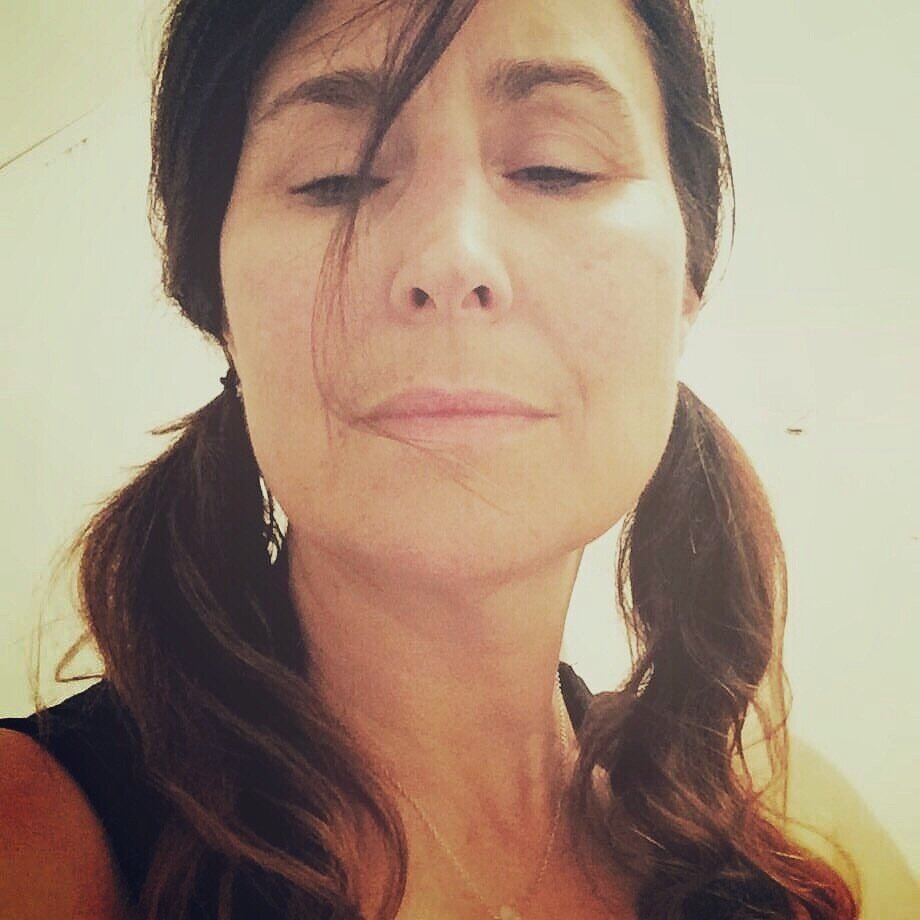Start where you are.
One of the first things I learned about the foundations of a good yoga practice is to “start where you are”. In a bad mood? Start there. Feeling great? Start there. Just lost your job or relationship? Start there. Feeling excited and hopeful for the future? Start there.
Starting where you are can and should (light on should) be applied to just about everything in life; hang gliding, starting a business, getting married or divorced, and even writing a blog. Because when you know where you’re coming from the more likely you’ll be to flow where you want to go.
Being this is the first YogiStoned blog, I’ll start where I am. In fact, that’s how every blog will start, with intention of centering and grounding into where I am in my thoughts and feelings with the world around me and within me:
With a few deep breaths, I settle into a comfortable seat. A few more breaths in and out, I start to notice that I feel good. I just finished a yoga practice. I drank some hot water with lemon, and an oat milk cappuccino. My hips still feel tight from too many hours at my computer. Its’ a chilly Thursday morning but the sun is beginning to shine brighter by the second. My attention is suddenly drawn to a sunbeam.
I’m also nervous, I’m fearful. I’m suddenly doubtful. My mind is caught up in expectations and writing the right things that actually interest and inspire the one person who might read this blog. With a few deeper, centering breaths, I allow myself to start from here.
I am a writer and yogi. I am also a forever student and sometimes teacher. (In fact, I am just beginning a new teacher training session and this is where my new students start too). I am curious. I am a seeker. I am creative. Right now, I’m seeking more creative ways to learn and share how mastering the skill of “starting where you are” can prove helpful both on and off your mat. So how do you do that? How do you start where you are? By checking in with where you’ve been.
My experience and practice suggest that it might be useful for some people to start at the origin of yoga through Patanjali’s Yoga Sutra – a practical guide on your spiritual journey of remembering who you are through the practice of yoga. The Heart of Yoga, Developing a Personal Practice, by T. K. V. Desikachar, is the first yoga text to outline a step-by-step sequence for developing a complete practice according to the age-old principles of yoga which maintains that practices must be continually adapted to the individual's changing needs to achieve the maximum therapeutic value.
The first sutra, or thread, in Patanjali’s Sutra lays out a succinct foundation for his teachings about present moment awareness:
Now the teaching of Yoga.
Or in Sanskrit: Atha yoganusasanam
The Sanskrit word Atha means now and fundamentally sums up what is foundational in yoga: to bring us deeply into the present moment.
Overall, the purpose of yoga is to cultivate awareness. Depending on where you are in your yoga journey, gaining a deeper understanding of the roots of yoga can help to deepen your practice and in by doing so, deepen your practice of self-awareness. Should you decide to dive into the Yoga Sutra, consider thinking of these threads not so much as commandments to live by but as Patanjali’s suggestions for living a balanced and ethical life through yoga.
But not all of us need dig into ancient texts to begin cultivating a practice of present moment consciousness. This morning might be plenty far back enough for you to figure out where you are. Sitting down and taking a few intentional, slow, deep breaths might be just the ticket to now.
Find a comfortable seat. Breathe with the intention of simply filling up and emptying out. Consider some things, like how you slept the night before, what you ate or didn’t eat for breakfast, how much stress you’re currently under or how much joy has been lifting you up. Awareness of what you’ve brought with you into this current seated moment matters. Where you are physically, mentally, emotionally, energetically influences the outcome of every thing you come in contact with.
“Changes of mind can be observed primarily in our relationships with other people. Relationships are the real test of whether we actually understand ourselves better.”
― T.K.V. Desikachar, The Heart of Yoga: Developing a Personal Practice
Whether it’s preparing for a yoga practice or a conversation with a friend, self awareness plays a role. Because when you know where you’re coming from, the clearer your path becomes, and the more likely you’ll safely and gently flow where you intend to go.
Keep practicing, good soul.
Peace,
Melissa @yogistoned

